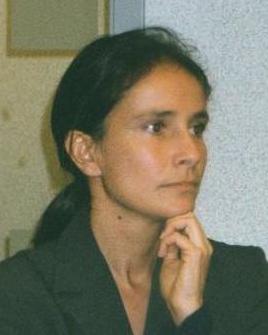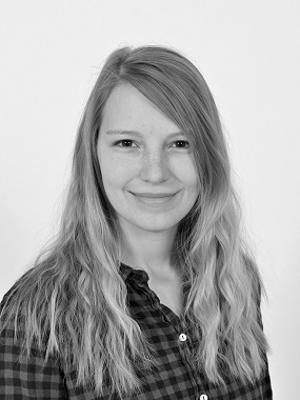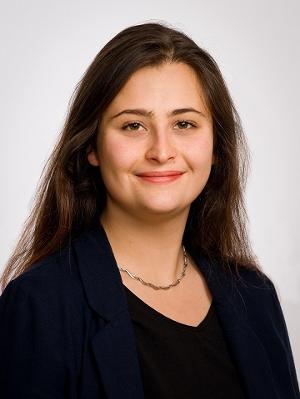Wisdom Lab
What is wisdom? How can we measure this complex construct in a valid way? Why do some people develop extraordinary wisdom over the course of their lives, while most of us … well … do not? How does wisdom manifest itself in different professional groups, such as teachers or managers? Whom do people consider as wise and why, and are there cultural differences in people’s conceptions of wisdom? Why does wisdom-related knowledge often not get translated into actual wise behavior? How can we make the world a wiser place? Our research group investigates all these and other questions about wisdom.
We study wisdom from a variety of perspectives. In the MORE Life Experience Model, we proposed that wisdom develops over the life span through an interplay of life challenges and intra- and interpersonal psychological resources – a theory that we tested in a longitudinal study. On the other hand, we are interested in contextual and situational factors that foster or hinder the manifestation of wisdom. In a previous research project we explored structural and contextual factors that enable teachers and managers to accumulate and utilize professional wisdom.
Our current research project GameWise investigates the potential of video games to foster aspects of wisdom through the short-term activation of wisdom characteristics (e.g., self-reflection, empathy, openness) and long-term effects of playing video games that foster reflection on existential issues.
The project members’ individual research projects are described below.
Team
University Professor
Judith Glück has been professor of developmental psychology at University of Klagenfurt since 2007. She received her diploma in psychology in 1995 and her doctoral degree in 1999, both at the University of Vienna. From 1999 to 2002, she was a postdoctoral research fellow at the Max Planck Institute for Human Development in Berlin, Germany. From 2002 to 2007, she was an associate professor of developmental psychology at University of Vienna. She is married with two children, born in 2002 and 2007.
Judith’s main topic of research is wisdom psychology. She is interested in the development of wisdom through an interplay of life experiences and internal and external resources, new methods of measuring wisdom, situational and contextual predictors of wisdom, wisdom in professional contexts, and people’s conceptions of wisdom across different cultures.
Senior Researcher
Irina Auer-Spath’s research focus is on interpersonal interactions and their influence on the development of wisdom. In her dissertation project, she examines the manifestation of wisdom in long-term intimate relationships and the role of relationship experiences for the development of wisdom. In the future, she wants to investigate wisdom- fostering and wisdom- hindering social interactions by observing couples during collaborative problem-solving. Some of her related research interests are self-expansion in and through relationships, the relation between attachment -patterns and wisdom, the teaching of wisdom by parents and educators, as well as wisdom in school contexts (teaching and learning). Irina’s research orientation is informed by lifespan developmental, personality (and social) psychology as well as family, relationship and attachment research. To capture the complexity of these topics, she uses diverse qualitative and quantitative methodologies.
Irina is also working as a psychotherapist under supervision in the field of Concentrative Movement Therapy (KBT). She is soon going to be a certified administrator of the Adult Attachment Interview (AAI).
University Assistant
Imke Alenka Harbig’s research focus is on fictional narratives and wisdom. In her master’s thesis, she took an exemplar approach to explore which fictional characters from books, movies, TV shows and video games people perceive as wise and why. Combining quantitative and qualitative methods, she also examined descriptions of specific scenes in which characters such as Albus Dumbledore from the “Harry Potter” series and Gandalf from “Lord of the Rings” were perceived as extraordinarily wise. Her dissertation project focuses on the effects of playing video games on personal growth and wisdom: what insights people gain from playing video games and what growing (up) with video games means.
Student Researcher
Sophia Wirthmiller’s research focuses on wisdom and acculturation processes. Combining qualitative and quantitative methods, in her bachelor thesis she explored the effects between wisdom and acculturation measures in sojourners. For her master’s thesis, she will utilize the insights from her bachelor’s thesis and explore the impact of cross-cultural experiences on developing wisdom.
Student Researcher
Katharina Keil
Student Researcher
Kim Raasch’s research interests focus on psychology and video gaming. She is particularly interested in the decision-making and reflection processes of long-term video game players, and how those gaming experiences shape their development and problem-solving abilities. Additionally, Kim is passionate about the international field, particularly in understanding how gaming cultures vary across different countries and their effects on behavior. In her free time, she is learning Japanese to deepen her engagement with global perspectives on gaming and psychology.
Student Researcher
David Rosebrock’s research interests are psychology and video games. He finds the possible connections between these two fields particularly fascinating, for example, accessing new thoughts and cognitions through playing a specific game. He is also intrigued by the use of VR headsets, especially for exposure therapy in treating anxieties. Additionally, he is interested in AI and print on demand. In his free time, David enjoys writing and reading, particularly short stories and poems.
Former Members
Eva Beichler, BSc.MSc.
Dr. Dominik Holzer, BSc. MSc.
Luisa Jäger, BSc. MSc.
Andreas Scherpf, BSc.
Ass.-Prof. Mag. Dr. Irene Straßer
Dr. Nic Weststrate MA, PhD
Funded Research Projects
GameWise: Fostering Through Video Games, FWF, 2024-2028
Situational Obstacles to Professional Wisdom, FWF, 2018-2021
Life Challenges, Resources, and Wisdom, FWF, 2013-2017
Development and Manifestation of Wisdom in Individual Lives, FWF, 2008-2012
Wisdom and the Life Story: How Life Experiences Foster Wisdom, Defining Wisdom Project, University of Chicago, 2008-2010
Publications on Wisdom
Peer-reviewed journal articles
Glück, J., Weststrate, N. M., & Scherpf, A. (2022). Looking beyond linear: A closer examination of the relationship between wisdom and wellbeing. Journal of Happiness Studies, 23(7), 3285-3313. https://link.springer.com/article/10.1007/s10902-022-00540-3
Glück, J. & Scherpf, A. (2022). Intelligence and wisdom: age-related differences and nonlinear relationships. Psychology and Aging, 37(5), 649–666. https://doi.org/10.1037/pag0000692
Glück, J. & Weststrate, N. M. (2022). The wisdom researchers and the elephant: An integrative model of wise behavior. Personality and Social Psychology Review, 26(4), 342-374. https://journals.sagepub.com/doi/full/10.1177/10888683221094650
Lang, L.-M., Jäger, L. & Glück, J. (2021). Auf dem Weg zur Weisheit: Die Weisheitsressourcen des MORE Life Experience-Modells. Praxis Klinische Verhaltensmedizin und Rehabilitation, 35(2), 4-12.
Glück, J. (2020). The important difference between psychologists’ labs and real life: Evaluating the validity of models of wisdom. Psychological Inquiry, 31(2), 144-150.
Asadi, S., Khorshidi, R., & Glück, J. (2019). Iranian children’s knowledge about wisdom. Cognitive Development, 52, 100814.
Glück, J., Gussnig, B., & Schrottenbacher, S. M. (2019). Wisdom and value orientations: just a projection of our own beliefs? Journal of Personality, 88, 833-855. https://authorservices.wiley.com/api/pdf/fullArticle/16637298.
Auer-Spath, I., & Glück, J. (2019). Respect, attentiveness, and growth: Wisdom and beliefs about good relationships. International Psychogeriatrics, 31, 1809-1821.
Glück, J., Bluck, S., & Weststrate, N. M. (2018). More on the MORE Life Experience Model: what we have learned (so far). The Journal of Value Inquiry, 53, 349-370. https://link.springer.com/content/pdf/10.1007%2Fs10790-018-9661-x.pdf
Glück, J. (2018). New developments in psychological wisdom research: a growing field of increasing importance. Special issue overview. The Journals of Gerontology, Series B: Psychological Sciences, 73, 1335-1338. https://academic.oup.com/psychsocgerontology/article/73/8/1335/5106011?searchresult=1
Glück, J. (2018). Measuring wisdom: existing approaches, continuing challenges, and new developments. The Journals of Gerontology, Series B: Psychological Sciences, 73, 1393-1403. https://academic.oup.com/psychsocgerontology/article/73/8/1393/4769351?searchresult=1
Glück, J. (2017). „… and the wisdom to know the difference”: Scholarly success from a wisdom perspective. Perspectives on Psychological Science, 12, 1148–1152.
Weststrate, N. M., & Glück, J. (2017). Hard-earned wisdom: Exploratory processing of difficult life experience is positively associated with wisdom. Developmental Psychology, 53, 800-814.
Koller, I., Levenson, M. R., & Glück, J. (2017). What do you think you are measuring? A mixed-methods procedure for assessing the content validity of test items and theory-based scaling. Frontiers in Psychology, 8, article 126. http://journal.frontiersin.org/article/10.3389/fpsyg.2017.00126/full.
König, S. & Glück, J. (2014). “Gratitude is with me all the time:” How gratitude relates to wisdom. The Journals of Gerontology, Series B: Psychological Sciences, 69, 655-666. http://psychsocgerontology.oxfordjournals.org/content/69/5/655.full.pdf?etoc.
Glück, J., König, S., Naschenweng, K., Redzanowski, U., Dorner, L., Strasser, I., & Wiedermann, W. (2013). How to measure wisdom: Content, reliability, and validity of five measures. Frontiers in Psychology, 4, article 405. http://www.frontiersin.org/personality_science_and_individual_differences/10.3389/fpsyg.2013.00405/abstract.
König, S. & Glück, J. (2013). Individual differences in wisdom conceptions: Relationships to gratitude and wisdom. International Journal of Aging and Human Development, 77, 127-147.
Redzanowski, U. & Glück, J. (2013). Who knows who is wise? Self- and peer-ratings of wisdom. The Journals of Gerontology, Series B: Psychological Sciences, 68, 391-394.
Glück, J., Bischof, B., & Siebenhüner, L. (2012). “Knows what is good and bad,” “Can teach you things,” “Does lots of crosswords:” Children’s knowledge about wisdom. European Journal of Developmental Psychology, 9, 582-598.
König, S. & Glück, J. (2012). Situations in which I was wise: Autobiographical wisdom memories of children and adolescents. Journal of Research in Adolescence, 22, 512-525.
Glück, J. & Bluck, S. (2011). Laypeople’s conceptions of wisdom and its development: Cognitive and integrative views. The Journals of Gerontology, Series B: Psychological Sciences, 66B, 321-324.
Staudinger, U.M. & Glück, J. (2011). Psychological wisdom research: Commonalities and differences in a growing field. Annual Review of Psychology, 62, 215-241.
Glück, J., Strasser, I., & Bluck, S. (2009). Gender differences in implicit theories of wisdom. Research in Human Development, 6, 27-44.
Glück, J. & Baltes, P.B. (2006). Using the concept of wisdom to enhance the expression of wisdom knowledge: Not the philosopher’s dream, but differential effects of developmental preparedness. Psychology and Aging, 21, 679-690.
Glück, J., Bluck, S., Baron, J. & McAdams, D. (2005). The wisdom of experience: Autobiographical narratives across adulthood. International Journal of Behavioral Development, 29, 197-208.
Bluck, S. & Glück, J. (2004). Making things better and learning a lesson: Experiencing wisdom across the lifespan. Journal of Personality, 72, 543-572.
Book chapters
Glück, J. (2022). How MORE Life Experience fosters wise coping. In M. Ferrari & M. Munroe (Eds.), Post-traumatic growth to psychological well-being: Coping wisely with adversity (pp. 265-269). Springer.
Glück, J. (2022). The development of wisdom. In R. J. Sternberg & J. Glück (Eds.), The psychology of wisdom: An introduction (pp. 175-182). Cambridge University Press.
Glück, J. (2022). Measurement of wisdom. In R. J. Sternberg & J. Glück (Eds.), The psychology of wisdom: an introduction (pp. 89-115). Cambridge University Press.
Glück, J., & Sternberg, R. J. (2022). Wisdom, morality, and ethics. In R. J. Sternberg & J. Glück (Eds.), The psychology of wisdom: an introduction (pp. 118-134). Cambridge University Press.
Sternberg, R. J., & Glück, J. (2022). Introduction: What is wisdom and why is it important? In R. J. Sternberg & J. Glück (Eds.), The psychology of wisdom: an introduction (pp. 3-14). Cambridge University Press.
Sternberg, R. J., Glück, J., & Karami, S. (2022). Psychological theories of wisdom. In R. J. Sternberg & J. Glück (Eds.), The psychology of wisdom: an introduction (pp. 53-69). Cambridge University Press.
Glück, J. (2020). Learning from life: How I became a wisdom researcher. In D. Dai & R. J. Sternberg (Eds), Scientific inquiry into human potential: Historical and contemporary perspectives across disciplines (pp. 235-245). Routledge.
Atwijukire, I., & Glück, J. (2020). Conceptions of wisdom in rural Uganda: A different view of what’s important in life. In A. Intezari, C. Spiller, & S.-Y. Yang (Eds.), Practical wisdom and leadership in a poly-cultural world: Asian, indigenous and middle-Eastern perspectives (pp. 79-97). Routledge.
Glück, J. (2020). Intelligence and Wisdom. In R. Sternberg (Ed.), The Cambridge handbook of intelligence (pp. 1140-1158). Cambridge University Press.
Glück, J. (2019). Wisdom. In R. J. Sternberg & J. Funke (Eds.), The Psychology of Human Thought: An Introduction (pp. 307-326). Heidelberg University Publishing.
Glück, J. (2019). Wisdom vs. populism and polarization: learning to regulate our evolved intuitions. In R. J. Sternberg, H. C. Nusbaum, & J. Glück (Eds.), Applying wisdom to contemporary world problems (pp. 81-110). Palgrave Macmillan.
Glück, J., Sternberg, R. J., & Nusbaum, H. C. (2019). Not today, and probably not tomorrow either: obstacles to wisdom. In R. J. Sternberg, H. C. Nusbaum, & J. Glück (Eds.), Applying wisdom to contemporary world problems (pp. 445-464). Palgrave Macmillan.
Glück, J. (2019). The development of wisdom during adulthood. In R. J. Sternberg & J. Glück (Eds.), The Cambridge Handbook of Wisdom (pp. 323-346). Cambridge University Press.
Kunzmann, U. & Glück, J. (2019). Wisdom and emotion: Perspectives from lifespan developmental psychology. In R. J. Sternberg & J. Glück (Eds.), The Cambridge Handbook of Wisdom (pp. 575-601). Cambridge University Press.
Sternberg, R. J. & Glück, J. (2019). Wisdom, morality, and ethics. In R. J. Sternberg & J. Glück (Eds.), The Cambridge handbook of wisdom (pp. 551-574). Cambridge University Press.
Sternberg, R. J. & Glück, J. (2019). Why is wisdom such an obscure field of inquiry and what can and should be done about it? In R. J. Sternberg & J. Glück (Eds.), The Cambridge Handbook of Wisdom (pp. 783-795). Cambridge University Press.
Weststrate, N. M., Bluck, S., & Glück, J. (2019). Wisdom of the crowd: Exploring people’s conceptions of wisdom. In R. J. Sternberg & J. Glück (Eds.), The Cambridge Handbook of Wisdom (pp. 97-121). Cambridge University Press.
Weststrate, N. M. & Glück, J. (2017). Wiser but not sadder, blissful but not ignorant: Exploring the co-development of wisdom and well-being over time. In M. D. Robinson & M. Eid (Eds.), The Happy Mind: Cognitive Contributions to Well-Being (pp. 459-480). Springer.
Glück, J. (2016). Wisdom. In N. Pachana (Ed.), Encyclopedia of Geropsychology. Springer.
Glück, J. (2015). Wisdom, Psychology of. In Wright, J. (Ed.), International Encyclopedia of the Social and Behavioral Sciences (2nd Edition, Volume 25, p. 590-597). Elsevier.
Glück, J. (2014). Entwicklungspsychologie der Lebensspanne. [Life-span developmental psychology.] In R. W. Alexandrowicz, T.-C. Gablonski & J. Glück (Hrsg.), Psychologie kompakt – Theorien und Forschungsperspektiven (S. 219-236). Facultas Verlag.
König, S. & Glück, J. (2014). Wisdom. In A. C. Michalos (Ed.), Encyclopedia of Quality of Life and Well-Being Research (pp. 7143-7147). Springer.
Glück, J. & Bluck, S. (2013). The MORE Life Experience Model: A theory of the development of personal wisdom. In M. Ferrari & N. M. Weststrate (Eds.), The Scientific Study of Personal Wisdom (pp. 75-98). Springer.
Glück, J. (2013). Wisdom. In D. S. Dunn (Ed.), Oxford Bibliographies in Psychology. Oxford University Press. Available at http://www.oxfordbibliographies.com/view/document/obo-9780199828340/obo-9780199828340-0061.xml?rskey=iUBqe7&result=81&q=
Ainsworth, S.A., Bluck, S., & Glück, J. (2012). Experiencing wisdom across the lifespan. In N.M. Seel (Ed.), Encyclopedia of the Sciences of Learning (pp. 1207-1209). Springer.
Staudinger, U.M. & Glück, J. (2011). Wisdom and intelligence. In R. J. Sternberg & S.B. Kaufman (Eds.), The Cambridge Handbook of Intelligence (pp. 827-846). Cambridge University Press.
Glück, J. (2011). “There is no bitterness when she looks back:” Wisdom as a developmental opposite of embitterment? In M. Linden & A. Maercker (Eds.), Embitterment: Societal, Psychological, and Clinical Perspectives (pp. 70-82). Springer Verlag.
Glück, J. (2010). Weisheit im “wirklichen Leben”: Ideen und Grenzen psychologischer Weisheitsforschung. [Wisdom in „real life“: Ideas and limitations of psychological wisdom research.] In B. Dorst, C. Neuen & W. Teichert (Hrsg.), Wissen und Weisheit – interdisziplinär (S. 31-51). Walter Verlag.
Bluck, S. & Glück, J. (2005). From the inside out: People’s implicit theories of wisdom. In R.J. Sternberg & J. Jordan (Eds.), A Handbook of Wisdom: Psychological Perspectives (pp. 84-109). Cambridge University Press.
Baltes, P.B., Glück, J. & Kunzmann, U. (2002). Wisdom: Its structure and function in regulating successful lifespan development. In C.R. Snyder & S.J. Lopez (Eds.), The Handbook of Positive Psychology. (pp. 327-350). Oxford University Press.
Books
Sternberg, R. J. & Glück, J. (Eds.) (2022). Wisdom: An introduction. Cambridge University Press.
Sternberg, R. J. & Glück, J. (2021). Wisdom: The psychology of wise thoughts, words, and deeds. Cambridge University Press.
Sternberg, R. J., Nusbaum, H. C., & Glück, J. (Eds.) (2019). Applying wisdom to contemporary world problems. Palgrave Macmillan.
Sternberg, R. J & Glück, J. (Eds.) (2019). The Cambridge handbook of wisdom. Cambridge University Press.
Glück, J. (2016). Weisheit – Die 5 Prinzipien des gelingenden Lebens. [Wisdom – The five principles of the good life.]. Kösel.
Quicklinks

Informationen für
Adresse
Universitätsstraße 65-67
9020 Klagenfurt am Wörthersee
Austria
+43 463 2700
uni [at] aau [dot] at
www.aau.at
Campus Plan



















